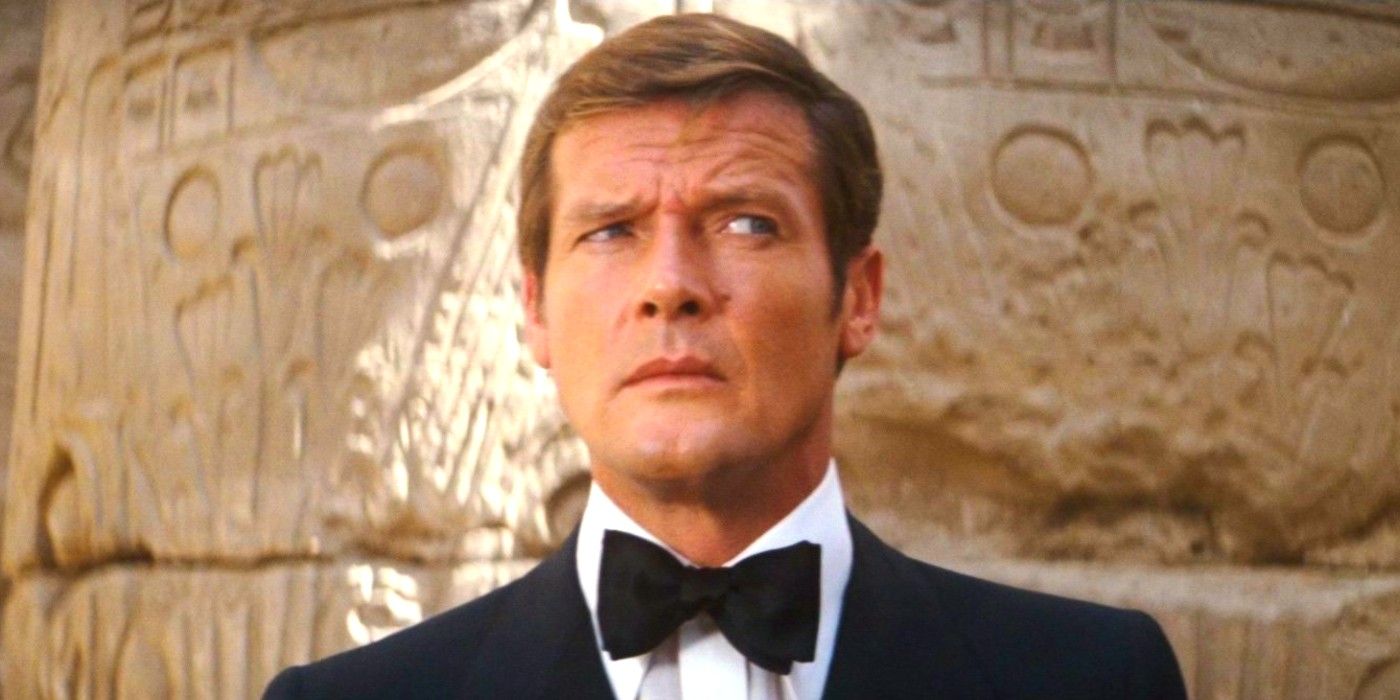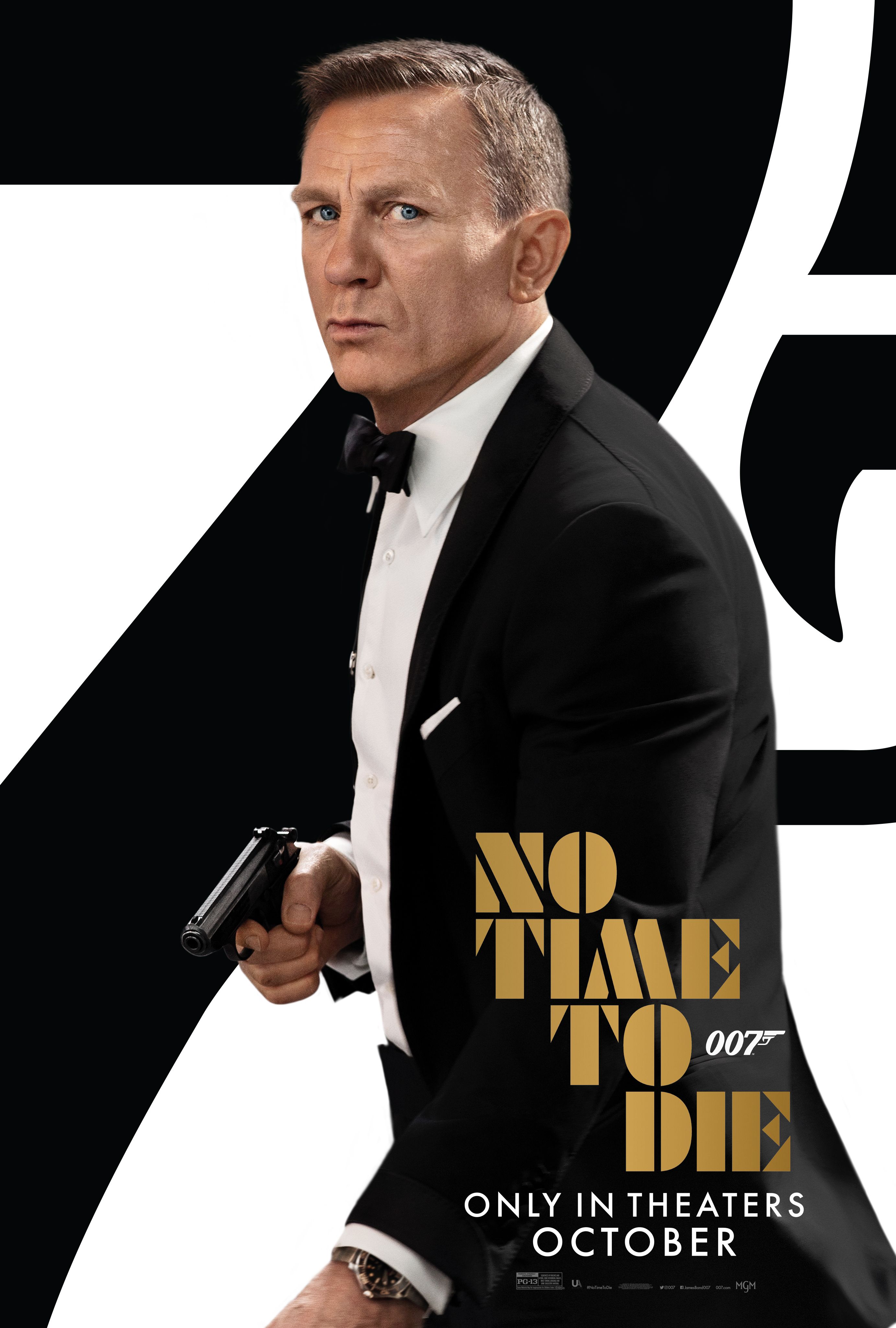Roger Moore will always be remembered as one of the most iconic James Bond actors of all time, but some of his movie moments in the franchise haven’t held up. As a replacement for the original and beloved 007 star Sean Connery, the British actor defied the odds and conquered the heart of the public. Roger Moore’s 007 remained with the audience longer than any other James Bond actor. His razor-sharp wit and goofy humor gave the character and stunts of Moore’s James Bond a charming touch.
However, since he first took on the role in 1973, not every aspect of Roger Moore’s 007 has aged as gracefully. Similarly to Sean Connery’s James Bond, some moments from the franchise feel outdated by today’s standards and might not resonate with modern audiences, though it has to be noted the entire James Bond franchise has moments that have not aged well. From the insensitive portrayal of disabilities to the outdated attitude displayed toward women, Roger Moore’s James Bond is emblematic of a different time.
10 Bond’s Age Gap with Solitaire
Live and Let Die
Roger Moore had numerous female partners who were significantly younger than him throughout the James Bond movies. However, in one specific case, the age of his co-star and the implications were particularly disturbing. Jane Seymour was only 22 when she played Bond’s romantic interest Solitaire in Live and Let Die. That means she and Moore had a 23-year age gap.
This condition leads to a pivotal moment where Bond tricks Solitaire into sleeping with him so that she is no longer a liability.
A particularly controversial aspect of this situation is how Solitaire’s youth is emphasized throughout the movie. Jane Seymour plays a psychic whose powers are exploited by the villain Dr Kananga for his pursuits. However, her abilities are said to work as long as she is a virgin. This condition leads to a pivotal moment where Bond tricks Solitaire into sleeping with him so that she is no longer a liability. Watching 45-year-old Roger Moore’s James Bond manipulating a 22-year-old girl into losing her virginity to him would not hold up too well with today’s audience.
9 Bond’s assault on Andrea
The Man with the Golden Gun
In The Man with the Golden Gun, Roger Moore’s Bond has a problematic encounter with a female character. Andrea Anders, played by Maude Adams, is the mistress of Scaramaga, the main antagonist of the movie. In an attempt to gather information about his enemy, Bond physically intimidates Andrea, slaps her face, and twists her arm, threatening to break it if she does not cooperate.
The film makes it clear that Andrea is not a ruthless villain, but a terrified woman trapped in an abusive relationship. Nevertheless, Bond has no qualms about using his physical advantage over her to achieve his goals. His actions lead to Maude’s character’s death. The encounter between the two brings out a problematic aspect of Roger Moore’s James Bond: he is perfectly content with using force against a woman who is a victim herself. This moment feels unnecessarily cruel and misogynistic by today’s standards.
8 Bond’s Cold-Blooded Murder of Locque
For Your Eyes Only
Roger Moore’s James Bond has one of the darkest moments in the whole history of 007. In For Your Eyes Only, Michael Gothard plays Locque, a cold-blooded assassin responsible for murdering Bond’s love interest, Countess Lisl von Schlaf—his actions fuel Bond’s quest for revenge. After an intense chase, 007 manages to shoot Locque and corners him into his vehicle on the edge of a cliff.
In a shocking turn of events, Moore’s Bond throws one of Locque’s pins into the car and later proceeds to kick the vehicle off the edge, condemning his enemy to an atrocious death.
Roger Moore himself was not too happy with the scene, as he felt like it was too out of character for his portrayal and understanding of James Bond. Although the scene remains one of the most iconic of all the series, the brutal and cold nature of the murder does not hold up too well with today’s less tolerant attitude toward gratuitous violence.
7 Stereotypes of Indian Culture
Octopussy
Although Moore’s James Bond is praised for his humor and ability to lighten up the traditionally somber tone of the franchise, not all of his jokes would hold up very well by today’s standards. Some of his attempts at sarcasm might come across as racially insensitive and culturally ignorant. The James Bond movie Octopussy is an example. A significant part of the movie is set in Udaipur, India. From snake charmers to sword-swallowing scenes, the film offers a caricature-filled portrayal of Indian culture.
The most notorious and glaring example of the racist undertones of the movie, however, is displayed through one of Roger Moore’s humoristic scenes. After 007 hands some cash to his Indian cohorts, he jokes: “That’ll keep you in curry for a few months!” The joke might have been fun fifty years ago, but nowadays, it only shows the once Western-centric ignorance of other cultures.
6 Locking a Man With Dwarfism in a Suitcase
The Man with the Golden Gun
Roger Moore’s 007 attempts at being amusing have occasionally turned out to be inappropriate. Especially when these jokes rely on the disabilities of other characters. In “The Man with the Golden Gun”, at the end of the movie, Moore’s James Bond confronts Nick Nack, one of the Bond villain’s henchmen, played by Hervé Villechaize. The problematic part of the scene, however, occurs when, to defeat him, Bond locks him in a suitcase, using his enemy’s dwarfism to his advantage.
Back then, the scene was likely supposed to evoke laughter in the audience. However, by today’s standards, this sort of approach would not hold up very well. The moment relies on a type of humor that is at the expense of someone else’s disability and feels out of touch with today’s more sensitive awareness toward this topic.
5 Bond’s Surprise At Dr. Goodhead Being a Woman
Moonraker
The character of 007 has notoriously displayed a sexist attitude toward women, and Roger Moore’s James Bond is not immune to this. One of the most glaring examples occurs in Moonraker. In the movie, Lois Chiles plays a NASA astrophysicist and astronaut, Dr. Holly Goodhead. James’s reaction to finding out that the accomplished doctor is a woman is of utter surprise:
Holly
Goodhead
: You just found her.James Bond: A
woman
!Dr
. Holly
Goodhead
: Your powers of observation do you credit, Mr. Bond.
The shock of Bond’s expression and the subsequent annoyance and sarcastic remark of Holly Goodhead might have come across as fun back in the 1970s. The scene reflected a typical attitude toward women in male-dominated fields. Nowadays, however, the spy’s approach feels slightly insulting and outdated. Bond’s cluelessness and ignorance are not as amusing anymore. Nevertheless, Dr Goodhead’s response is. If Bond’s sexist view of the world does not hold up very well, the doctor’s character does, and very successfully.
4 The Stereotype of the Bimbo
The Man with the Golden Gun
In The Man with the Golden Gun, Britt Ekland plays the role of a beautiful and young Secret Service agent, willing to assist Bond in his mission against Scaramanga. Her character, Mary Goodnight, who is infatuated with Roger Moore’s Bond, is presented as a ditzier and more naive version of her book’s counterpart. Bond himself treats her with very little respect, although by the end of the movie, Mary ends up being the spy’s main love interest.
Despite being a field agent, a job that requires tremendous bravery, her Bond Girl character in Moore’s James Bond movie is given little respect.
Although Ekland’s role might occasionally be comic relief and a source of laughter for the audience, her portrayal heavily relies on negative stereotypes around women. Despite being a field agent, a job that requires tremendous bravery, her Bond Girl character in Moore’s James Bond movie is given little respect. Her role is reduced to an outdated stereotype of the dumb blonde, who is mainly recognized for her golden hair and sex appeal. This sexist and dismissive trope would not bode too well with modern society.
3 Bond’s continuous advances toward Anya Amasova
The Spy Who Loved Me
In The Spy Who Loved Me, Bond is paired with Anya Amasova, a Soviet agent, played by Barbara Bach. Throughout the movie, James Bond openly makes advances towards Anya, even though he is responsible for killing her lover. The two share a sexual encounter after he saves her from Jaws and, while she is still unaware of Bond’s role in the murder of her previous romantic interest. After the Soviet agent finds out, however, she vows revenge only to later succumb once again to Bond’s advances at the end of the movie.

Related
Re-Assessing Roger Moore’s James Bond After 50 Years: 5 Things He Got Right & 5 He Got Wrong
50 years after Roger Moore debuted in the role of James Bond, there are plenty of things his movies got right about 007 (and plenty they got wrong).
Bond’s pursuit of a woman whose partner he murdered is more than a little troubling and morally suspect. The way she easily gives in to his advances, despite their complicated history, also reduces the character to another pawn in James Bond’s misogynist game of seduction. This choice deprives Bach’s character of agency and would not feel very satisfying with today’s audience’s major sensitivity to the nature of toxic relationships.
2 The Character of Jaws
The Spy Who Loved Me and Moonraker
The 007 movies have a history of using facial disfigurement as a way to emphasize a character’s villainous nature. One example of this in James Bond is Richard Kiel’s “Jaws”. After playing one of the villain’s henchmen in The Spy Who Loved Me, Richard Kiel became instantly popular and was cast again for Moonraker. His character’s towering stature and metal teeth gave him a unique appearance aimed to highlight the monstrous nature of the role. His teeth allowed 007’s enemy to have an extremely strong bite, which made him appear even more frightening to the audience.
Nowadays, however, the trope of associating physical impairments and scars with evil feels reductive and lazy. The trope risks perpetuating negative stereotypes that emphasize physical differences as threatening. In today’s society, a good villain deserves nuanced and complex representation instead of being a caricature.
Live and Let Die
In Live and Let Die, the portrayal of the African American community is overly reliant on negative stereotypes. The character of Baron Samedi, for instance, one of Dr Kananga’s henchmen, is a Voodoo master, a caricature-like trope that reinforces outdated narratives about African beliefs and religions and their association with dark and dangerous magic.
Compared to Ian Fleming’s original book, Roger Moore’s James Bond adaptation is less insensitive. Nevertheless, the portrayal of the African American community still reflects an outdated attitude typical of the early 1970s that does not hold up well in modern society. Today, the portrayal of these characters would be harshly criticized for lacking depth and reducing an entire community to a unidimensional stereotype. Sadly, 007’s occasional lack of cultural awareness is a recurring theme in the franchise, especially in its earlier movies, and Roger Moore’s James Bond era is certainly guilty of this.
